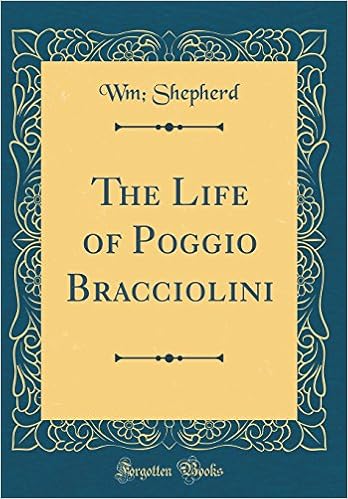100 per page. Guarino, Veronese, 1374-1460. Creator/Contributor: Bracciolini, Poggio, 1380-1459, creator. Letter; to Christofore Felici: 1457 Nov.
Title from caption (1₈ recto): Pogii florentini oratoris clarissimi liber face//tiarum incipit feliciterSignatures (adapted from Gesamtkatalog der Wiegendrucke): 1-12⁸.All leaves unsignedChancery quarto; 2₁ recto: 26 lines, 120 x 80 mm; type: 92; initial spaces without guide letters.Gesamtkatalog der WiegendruckeGoff, F.R. Incunabula in American librariesIncunabula short title catalogueCOPY NOTE: Boston Public Library (Rare Books Department) copy Q.405.14 imperfect: leaves 3₆-3₇, and any leaves after 12₁₀ wanting and replaced in modern manuscript. Initial spaces rubricated in red throughout. Seven-line initial space on 1₈ illuminated. Leaf dimensions: 190 x 152 mm.PROVENANCE: Boston Public Library (Rare Books Department) copy Q.405.14 with bookplate of the BPL Schofield Fund. 19th-century inscriptions on recto and verso of front flyleaf.
BPL embossed stamp on 1₁ recto. Early marginal annotation in French on 1₁ recto. Kate rusby torrent download. Folded sheet with early biographical inscription pertaining to Poggio Bracciolini tipped-in before 1₈. Hand-painted coat of arms at center and border of vines running into the margin containing the name, 'I. Purchased June, 1899.BINDING: Boston Public Library (Rare Books Department) copy Q.405.14 quarterbound in modern brown goatskin and papier tourniquet. Spine tooled and stamped in gilt.

Text block oversewn/sewing structure not discernible.NotesNo title page found. No copyright page found. No table-of-contents pages found.Pages 61 and 65 - 67 are missing/not designated in the original material.
The De Infelicitate Principum of Poggio Bracciolini (1380–1459) is a dialogue between Carlo Marsuppini, Cosimo de Medici and Niccolo Niccoli. Niccoli, the main speaker, maintains that all princes are unhappy, the good ones because of the burdens and cares of rule, and the evil ones because they lack the prerequisite of happiness, virtue. Niccoli supports his thesis by quoting ancient authors, primarily Cicero, Isocrates, Lucian and Seneca, and by recalling appropriate examples culled from ancient literature. The dialogue seems to have been inspired by Xenophon's Hiero, though the work is not quoted. Other publications on Poggio by the present author are: “Poggio Bracciolini and Classical Epigraphy”, Arctos 19 (1985): 19–40; “Fortune in the Works of Poggio Bracciolini”, Arctos 20 (1986): 25–37; (with Outi Merisalo) “The 1723 Edition of Poggio Bracciolini's De varietate Fortunae”, Humanistica Lovanensia 36 (1987): 71–84; “Poggio Bracciolini and Classicism,” Annal. B 238, Helsinki, 1987; “The Idea of Fate in Poggio Bracciolini”, Actos 22 (1988): 59–73; “A Humanist Credo.
Poggio Bracciolini on the Meaning of Studia Humanitatis and Virtus”, Arctos 23 (1989): 98–119; “Poggio Bracciolini's Oratory”, forthcoming in Studi Piceni (1994?).
